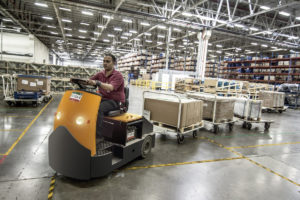 The scary shoplifting cases we hear and see on TV, or on newspapers in the United States, are becoming too commonplace to rendered us shocked.
The scary shoplifting cases we hear and see on TV, or on newspapers in the United States, are becoming too commonplace to rendered us shocked.
Shoplifting has always been a problem for stores across the globe, but now, people are losing their lives because we put more value on a bag of cookies than a human’s life. The incidents that are happening now concerning shoplifting should make us ponder whether the reactions, lives lost and the way our employees conduct themselves during a shoplifting incident merits those responses.
We should not forget that Shoplifting is a crime and that as an owner of a retail store your livelihood depends on the profits that you can gain by being a responsible owner. But, we cannot forget that we are dealing with human lives as well.
If the price of a bag of cookies has the same value to you as a shop owner than a human life, then deterrents to prevent shoplifting are probably of no interest to you. But, if you believe that prevention to these crimes is the beginning of solving a major social issue in this country, then maybe prevention methods and other solutions are likely to be of interest to you as an owner.
- Training — We have read more than once about the death of an accused shoplifter in a store. Authorities are called to the business when the shoplifting incident has gone out of hands and the resulting confrontation has led to the death of the accused shoplifter. Now, what? Lawyers, police departments and customers are involved, and the incident has become a national news piece. Providing training to your employees to respond appropriately to a shoplifting incident has proven to be an investment that you will not regret and lives that will not be lost.
- CCTV cameras, prevention systems, and facial recognition software are some of the preventable shoplifting measures you can use to prevent, deter and fight shoplifting in your stores. These are some of the investments that apart from your employees will become invaluable to you and pay for themselves in the short run.
- Inventory — If you know what you are selling, what is being stolen, and what are some of the items that are more enticing for shoplifters-because of the resale value or ease of trading — you may be able to use more of your resources to protect those aisles or move them to a safer place. Being aware of what is happening in your store is instrumental in the prevention of shoplifting.
- Employees that care what is happening in your store is an issue that is too important to ignore. Studies have shown that happy employees make great employees and can boost the morale of the people that work with them. Your responsibility as an owner begins by rewarding your employees – By increasing their salary, offering incentives, and/or offering praise-your business can gain the caring you need to protect your store.
- Hiring the right people for your store begins by using the tools at your disposal that can make a difference in your hiring. Background checks are the first step in ensuring you have the right people in place.
The rewards of paying for your employees’ training can be seen almost immediately. There is no reason why the investment should be put elsewhere when employee ’s training has been shown to be a great and continues asset for the business owner.
 Recently, I conducted an employee theft investigation for a client. I want to share some of the findings from that investigation in the hopes that you can use it to review your own potential for losses.
Recently, I conducted an employee theft investigation for a client. I want to share some of the findings from that investigation in the hopes that you can use it to review your own potential for losses. 
 Many small and big chain businesses across the country are fed up with the amount they lose due to shoplifting and employee theft.
Many small and big chain businesses across the country are fed up with the amount they lose due to shoplifting and employee theft. Because like alcohol abuse, both legal and illegal drug use, affects your bottom line. This issue
Because like alcohol abuse, both legal and illegal drug use, affects your bottom line. This issue 
 As managers and supervisors, we are all guilty at some point of assuming our employees will know what we are wanting from them when we make a request or assign a project. It may be something as simple as asking someone to empty a trash canister or as complicated as resetting a plan-o-gram. In our minds, the requested task may only require common sense but to the employee, it may be something totally different. Take the trash can example, you may ask an employee to empty it and assumed they would empty it into a compactor and place a new trash can liner inside. The employee may only hear that you want them to take the bag out and place the trash beside the compactor. They don’t hear you tell them to put a new liner inside the canister when they are done because you never said it. It seems like it should only be common sense but it isn’t necessarily the case. The same problem exists for every aspect of a job. Sometimes those of us in management positions make unfair assumptions and then get angry when our team members don’t do what we expected them to do.
As managers and supervisors, we are all guilty at some point of assuming our employees will know what we are wanting from them when we make a request or assign a project. It may be something as simple as asking someone to empty a trash canister or as complicated as resetting a plan-o-gram. In our minds, the requested task may only require common sense but to the employee, it may be something totally different. Take the trash can example, you may ask an employee to empty it and assumed they would empty it into a compactor and place a new trash can liner inside. The employee may only hear that you want them to take the bag out and place the trash beside the compactor. They don’t hear you tell them to put a new liner inside the canister when they are done because you never said it. It seems like it should only be common sense but it isn’t necessarily the case. The same problem exists for every aspect of a job. Sometimes those of us in management positions make unfair assumptions and then get angry when our team members don’t do what we expected them to do. A Target or Walmart store can and are able to fight shoplifting in their stores every day of the year.
A Target or Walmart store can and are able to fight shoplifting in their stores every day of the year. Some of the most stolen items in stores in the United States are not surprising. From Infant formula to razors, people are stealing these items to sell them for quick cash or because they are shoplifters that are dedicated to doing this crime. Valentine’s Day is approaching, and some of the items that seem to be gifted during this day are among the most commonly stolen items in the United States. A shoplifter will steal any time of the year, whether the opportunity presents itself or not, or whether it’s a holiday or a weekday. As a store manager or employee of a store, greeting and treating a customer politely can gain you a customer, and deter a shoplifter from stealing from your store. Customer service has been proven time and again to be a great deterrent to shoplifters, and cannot hurt to be polite and competent with your regular customers.
Some of the most stolen items in stores in the United States are not surprising. From Infant formula to razors, people are stealing these items to sell them for quick cash or because they are shoplifters that are dedicated to doing this crime. Valentine’s Day is approaching, and some of the items that seem to be gifted during this day are among the most commonly stolen items in the United States. A shoplifter will steal any time of the year, whether the opportunity presents itself or not, or whether it’s a holiday or a weekday. As a store manager or employee of a store, greeting and treating a customer politely can gain you a customer, and deter a shoplifter from stealing from your store. Customer service has been proven time and again to be a great deterrent to shoplifters, and cannot hurt to be polite and competent with your regular customers. I actually like and believe in all three of these things. When it comes to drugs they have to be the legal kind. All of us have seen the destruction that illegally used drugs cause. In a business environment, illegal drug use by an employee not only has an impact on their work performance but creates serious customer and legal issues for employers. An employee that is under the influence of any substance that influences their ability to do their job correctly or safely, will cause customers to question who they are doing business with.
I actually like and believe in all three of these things. When it comes to drugs they have to be the legal kind. All of us have seen the destruction that illegally used drugs cause. In a business environment, illegal drug use by an employee not only has an impact on their work performance but creates serious customer and legal issues for employers. An employee that is under the influence of any substance that influences their ability to do their job correctly or safely, will cause customers to question who they are doing business with.